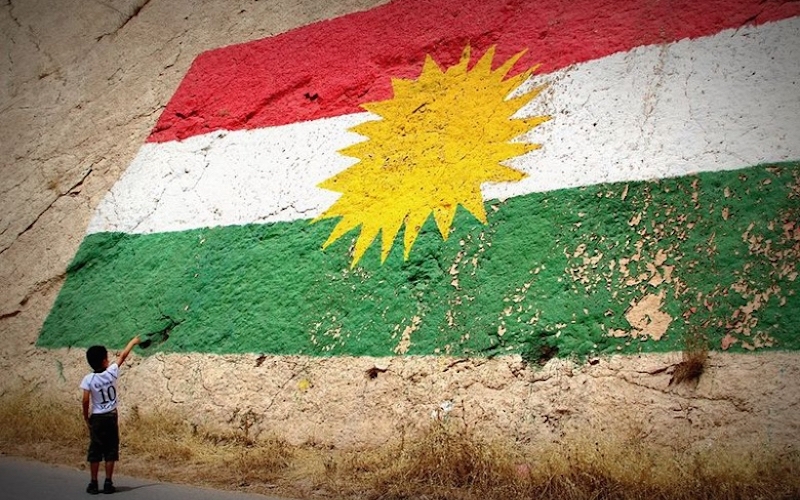To understand the importance of the Kurdish fight for independence in the Middle Eastern conflict today, one might trace thee roots in the earlier civilizations, however, the fight for independence was revived by the promise of autonomy in the early 1920s.
Kurdish people have a shared history and culture that spans millennia. They have been conquered and pulled into numerous empires over their three thousand year history. Ancient Persians conquered them first, followed by Alexander the Great, then Muslim Arabs in the seventh century, the Turks in the 1000s, the Mongols in the 1200s, and the Persians again during the Middle Ages. The last empire to conquer the Kurds was the Ottoman Empire who held control over the Kurds until World War One when the Ottoman Empire was dismantled 1

Following the end of World War One in 1918, Britain was deeply embroiled in the disputes among Mesopotamian nations making decisions on how to govern the new nations, specifically the Kurds. Between the years 1918 and 1920, Kurdish nationalist movements were rising and gaining momentum, their main goal: an independent state. Britain attempted to create a Kurdistan state using pieces of land from modern day Iraqi Kurdistan, but all attempts failed 2 The Treaty of Sèvres in 1920 dismantled the Ottoman Empire and started establishing boarders for all the nations that were previously under Ottoman control 3 Despite efforts made, there was no final decision for the Kurds in this Treaty, only arrangements made for the possibility of a future Kurdistan nation-state.

The Cairo Conference in 1921, again, reiterated the point that the Kurdish nation had a right to self-determination or to have a state. These territories include “east of the Euphrates, south of the southern boundary of Armenia… north of the frontier of Turkey with Syria and Mesopotamia” as set forth in the Treaty of Sèvres 4 The Conference had multiple committees, including one led by Churchill, who, following Wilson’s fourteen points that stated that Kurdish and other non-Turkish nations were previously a part of the Ottoman Empire, recommended giving land and the opportunity to become autonomous states 5 Autonomous did not mean that the states would necessarily become individual independent states, but rather that they would be allowed to govern themselves within larger political units. This committee discussed the future of the Mesopotamian plains and Britain’s future relationship with those groups. The Conference eventually decided not to force Kurdistan to join the Iraqi state. More importantly, the Cairo Conference decided to that Kursistan would remain as it was until the Kurds and their representatives could determine their own future 6
The Treaty of Sèvres was never ratified due to an overthrow of the Turkish government, so neither it nor the many recommendations from the Cairo Conference ever went into effect 7 Eventually, in 1923, the Treaty of Sèvres was replaced by the Treaty of Lausanne 8 The Treaty of Lausanne did not include any space for making Kurdistan an official and sovereign nation-state. Instead, Kurdistan was grouped in with Iraq and Kurdish nationalist movements were suppressed 9
So, despite promises made by Western allies, Kurdistan remained one of the largest nations without a state. A nation that spread across multiple countries, including Syria, Turkey, Iraq, Iran, Armenia. Today, there are between 25 million and 35 million Kurds across the five countries and another 2 million Kurds spread across Europe. They are the fourth largest ethnic group in the Middle East 10 Kurds continue to be target of much repression, oppression, and even persecution in Turkey, Iraq, & Syria. In the span of three years, they went from deserving autonomy in Sèvres to full omission from the final agreement made in Lausanne.
- Salem Press Encyclopedia 2017, s.v. “Kurdistan (geo-cultural region) by Jack Lasky.” ↵
- Saad Eskander, “Southern Kurdistan under Britain’s Mesopotamian Mandate: From Separation to Incorporation, 1920-23.” Middle Eastern Studies no. 2 (2001): 153. ↵
- “Sèvres, Treaty of,” Columbia Electronic Encyclopedia, (March 2017): 1. ↵
- “Treaty of Sèvres,” Section I, Articles 1 – 260 – World War I Document Archive, May 2009. ↵
- “Avalon Project – President Woodrow Wilson’s Fourteen Points” Lillian Goldman Law Library, 2008. ↵
- Azad Aslan, “KurdishGlobe- The Cairo Conference: Critical Years in the History of Southern Kurdistan 1921-22” Archive.is, June 20, 2013. Accessed February 21, 2018. https://archive.is/0mN7J. ↵
- A. E. Montgomery, “The Making of the Treaty of Sevres of 10 August 1920.” The Historical Journal no. 4 (1972): 775. ↵
- “Treaty of Lausanne,” The World War One Document Archive, May 2009. ↵
- Saad Eskander, “Southern Kurdistan under Britain’s Mesopotamian Mandate: From Separation to Incorporation, 1920-23.” Middle Eastern Studies no. 2 (2001): 153. ↵
- “Who Are the Kurds?” BBC, October 31, 2017 http://www.bbc.com/news/world-middle-east-29702440. ↵



23 comments
Tyler Sleeter
Great article. I have heard of the problems the Kurds are having, but did not really understand the causes until reading your article. It seems to me that the Kurds were given a land in the first treaty then had the land taken away by the second treaty after World War I. But it also seems that the Kurds have a long history of losing their lands to conquering nations even before this time. It also seems that the treaty was not really fair to the Kurds and several other nations by only giving the right to govern themselves without giving them any right to their own lands. It is good to know that they were able to gina their own independence after the fall of Hussein in the 2000s.
Fumei P.
I knew that the Kurdish have continued to be targets of oppression and prosecution, however I never really gave much thought about them having their own State or even why they didn’t have one to begin with. It’s interesting that they went from having the opportunity to become autonomous and have their own state in the Treaty of Sèvres to having nothing and being completely omitted in the Treaty of Lausanne.
Johnanthony Hernandez
Great article, I have lost track of time and have not been able to keep up with what has been happening to the Kurds. But your article was very informative and did provides the history that very few know about the Kurds. Up until reading your article, the most I knew about them was from the early 1990’s thru the mid 2000’s when they were under constant oppression from Saddam Hussein. But it was interesting to see how they had gained their independence in such a short span of time
Hanadi Sonouper
This was a very informative article about the Kurds, I have continued to learn more about their background and history throughout my classes but this particular article shared light upon their story. They are indeed a nation without a state, and have undergone brutality and warfare by surrounding states. I commend the author for writing such a strong article and the outline and images really illustrated the difficulties that this particular ethnic group endures.
Matthew Wyatt
This is a fascinating and well written article. I have just a couple editorial notes. First, the article begins with a run-on sentence. This can be easily fixed by placing a period after “civilizations” and capitalizing “however.” Next, your sentences that end in footnotes are missing punctuation. Most likely you just need double check your citation format to solve the problem. That being said, this is a succinct, informative, and entertaining piece about a topic that woefully few know anything about. Well done.
Yahaira Martinez
Im not very familiar with middle eastern conflict and had absolutely no idea who the Kurds were but this article did a very good job at describing the situation and what was going on and is still going on to this day. Its very sad that this group of people are constantly being oppressed and have really nowhere to identify as their nation and origin.
Miranda Alamilla
Learning about the Kurds in my Intro to Global Affairs class this semester and in my Intro to International and Global Studies class last semester, I can say that my knowledge on them is moderate; although, not very extensive. I knew, going into this article, that the Kurds are a nation without a state and that they wished that they could have a state. However, I did not know that the amount of Kurds in the world is so expansive (37 million) and growing. It would be hard to give the Kurds their own state because the land that they want is already a different state. So, what then, would make it far to give the Kurds a piece of a different state? Great article.
Caroline Bush
Interesting article! Before reading this article I had never heard about the Kurdish struggle for independence. However that might be because I am not very well versed with Middle eastern history. I find it interesting how there are at least 37 million Kurds in the world yet they are still ignored and longing for acceptance. Its sad that these people continue to be thrown aside and are not even able to have some form of governing. Overall this was a very interesting article that I can tell was very well researched.
Saira Castellanos
I did not know that the Kurds existed, which i guess is sad, but then again i do not know much about all of the Middle East. I am sure that it is angering to the Kurds to not have their own form of government even though there are many Kurds. Its so sad these people are being killed in other countries, and they are completely outcasted. Its like countries are basically bullying these people by dangling autonomy in front of them and then taking it away from them. Maye some day they will get they independence they desperately want.
Iris Henderson
This article was very descriptive in the oppression and longtime struggle of the Kurdish people. It was interesting to learn that they are the 4th largest group of people in the Middle East, yet they cannot seem to find acceptance and instead deal with a lot of the opposite. It is very unfortunate that the Treaty of Sevres was never ratified and they have gone an additional hundred years without resolution when they were so close.